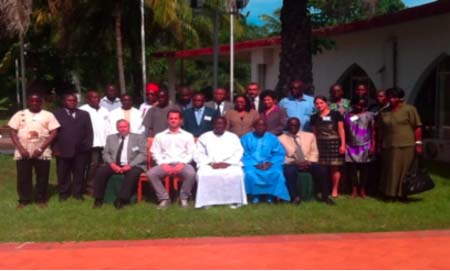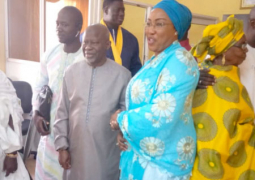
The first meeting of the ACP Ministers in charge of Fisheries was held at the ACP House, Brussels, in June 2009 to establish a roadmap for the ACP Ministerial Fisheries Mechanism.
The ACP Fish II programmes, entitled ‘Strengthening Fisheries Management in ACP Countries’, is funded under the 9th EDF 330 million euros and expected to end in November 2013.
The September meeting gathered focal points across from ACP countries with its overall objective of contributing to the sustainable and equitable management of fisheries in ACP regions; thus leading to poverty alleviation and improving food security in ACP states.
Speaking at the official opening ceremony, Gustavo Miranda from Belgium said: “This is an important meeting at regional level as it will allow us to do a balance of the state of implementation of the 29 projects that were planned for the programme in Western Africa.”
According to him, participants with donors will also evaluate the projects performance and the quality of the output of the projects.
He noted that the meeting will also avail participants the opportunity to discuss ACP Fish II contribution to fisheries development and the capacity building of the national administrations in the region.
Thirty-six projects have been financed in Western Africa under the programme, during its four years of activity, he said, adding that the programme has always considered the needs that have been identified by the different countries in the region and the regional fisheries bodies.
“We can therefore consider the programme execution as achieved, while some projects underway are waiting follow-up activities.”
Mass Axi Gai, minister of Fisheries and Water Resources, noted that fisheries in ACP countries are an important sector with respect to the income and livelihoods of communities dependent on marine and inland water aquatic resources.
The minister revealed that 600,000 persons rely on fisheries for their subsistence, saying the sustainable development of fisheries remains in many cases a poorly understood priority, particularly given
the contribution that fisheries make to income generation, employment, food security and trade.
Minister Gai acknowledged that the EU remains the largest destination for ACP fish and fisheries products, accounting for 68 per cent of export value.
However, a number of developments have contributed to reducing the advantages enjoyed by ACP producers, prominent among which are differentiated trade agreements and concession, rules of origin and sanitary and photo-sanitary rules and regulations among others.
Representing the EU delegation, Mr Jocelin Amalfi said the EU programmes has contributed a lot to ACP countries, adding that the programme has also contributed to the fisheries sector.
Famara Dampha, director of Fisheries, said fisheries is an extremely important sector in Western African due to the multiple roles it plays, including contribution to the creation of national wealth through revenue generated from exportation of fish products, notably to the European market; the creation of employment on both small-scale and industrial levels and its contribution to food security.
“A total of 182 capacity-building projects have been envisaged during project implementation and up to 30th May 2011, only 44 projects have already been implemented.”


